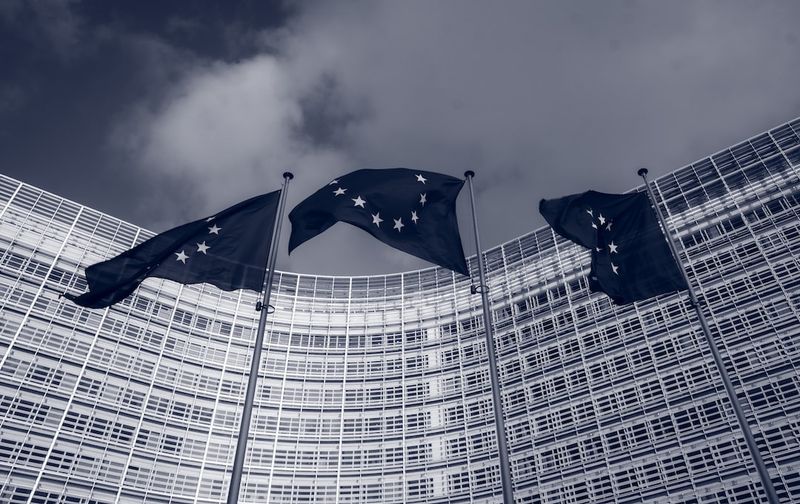Labour Plans to Fight Next Election on Economy
Introduction
Labour has outlined its strategy for the next election, vowing to prioritize the economy in its campaign. Shadow Chancellor Rachel Reeves delivered a speech at the Labour Party Conference, outlining plans to bring about an “era of economic security” for the country. In a move that signals a departure from traditional Labour themes, Reeves promised to cut waste, drive growth, and tackle fraud and inefficiency. This article will analyze Labour’s economic vision, its implications for the political landscape, and the potential challenges the party could face in implementing its agenda.
A Focus on Economic Security
In her speech, Rachel Reeves emphasized the importance of economic security, stating that “there is no hope without security.” Labour’s plan to address this includes a crackdown on fraud, waste, and inefficiency, particularly within the Conservative government. Reeves specifically targeted Tory ministers’ use of private jets as an example of excessive spending that needs to be curbed. Additionally, Labour aims to slash government consultancy spending, which has seen a significant increase in recent years.
Promoting Growth and Investment
Labour’s economic strategy also focuses on driving growth and investment in key sectors, such as green energy, battery factories, and 5G infrastructure. Reeves pledged to overhaul planning rules to expedite these projects and address the increased decision times for major projects, which have grown to four years since 2012. To achieve these goals, Labour plans to hire 300 new planners across the public sector and rewrite planning guidance.
Leveraging Profile and Political Confidence
Labour has strategically pushed Rachel Reeves into the spotlight in recent months, positioning her as not only a potential Chancellor of the Exchequer but also the face of the party’s economic campaign. By choosing to focus on the economy rather than other traditional battlegrounds like the NHS, Labour demonstrates its confidence in its ability to challenge the Conservatives on their turf. This shift indicates a willingness to engage in a direct fight over economic policies and signals a departure from previous election strategies.
Implications and Potential Challenges
Labour’s decision to prioritize the economy in the next election carries both opportunities and risks. By challenging the Conservatives on economic issues, Labour aims to position itself as a viable alternative government. However, successfully implementing their economic vision will require not only strong policy proposals but also effective communication and consensus-building within the party.
Economic Transformation vs. Timidity
Labour has faced criticism from some factions within the party, including the left-wing pressure group Momentum, for not fully addressing the economic crises facing Britain. Momentum described Labour’s plans as “disappointing” and argued for a more transformative approach to the economy. Similarly, Unite, historically Labour’s largest financial backer, called for bolder action in nationalizing critical infrastructure. Balancing the demands of different factions within the party while maintaining a clear economic message will be a key challenge for Labour.
Unity within the Party
Labour’s economic strategy relies on robust support from all wings of the party, particularly as it addresses potential divisions over the nationalization of critical infrastructure. The upcoming vote on whether to adopt Unite’s proposal will test Labour’s ability to maintain unity while charting a course forward. Rachel Reeves will need to navigate these internal dynamics to ensure a cohesive and persuasive economic vision for the party.
The Conservative Response
Labour’s focus on the economy sets the stage for a direct contest with the Conservatives, who traditionally champion their economic record. The Conservatives’ response to Labour’s economic plans will likely center on highlighting their achievements in managing the post-pandemic recovery and promoting pro-business policies. Labour will need to present a compelling alternative vision and address concerns over its ability to manage the economy effectively.
Economic Realities and Voter Priorities
Labour’s success in its economic campaign will also depend on its ability to address the economic realities faced by voters and their priorities. It will need to strike a balance between addressing economic inequality, fostering growth, and responding to the challenges of the post-pandemic economy. Moreover, Labour must ensure its economic policies resonate with a broad range of voters and are not limited to a specific demographic or geographic base.
Conclusion
Labour’s decision to fight the next election on the economy signals a shift in strategy and demonstrates the party’s confidence in its economic vision. Rachel Reeves outlined plans to prioritize economic security, tackle waste and inefficiency, and drive growth in key sectors. However, Labour will face challenges in maintaining party unity, countering Conservative messaging, and addressing voter priorities. The economic campaign is crucial for Labour’s electoral prospects, and its success will depend on effective policy proposals, strategic communication, and cohesive party support.

<< photo by Christian Lue >>
The image is for illustrative purposes only and does not depict the actual situation.
You might want to read !
- Carney’s Stamp of Approval: Labour’s Rachel Reeves Receives Endorsement from Former Bank of England Governor
- Suzy Eddie Izzard: A Progressive Powerhouse Vying for Labour Candidacy in Brighton
- Labour’s Victory in Selby By-Election Deals a Double Blow to Sunak
- Labour’s Economic Agenda: A Battle Plan for the Next Election




